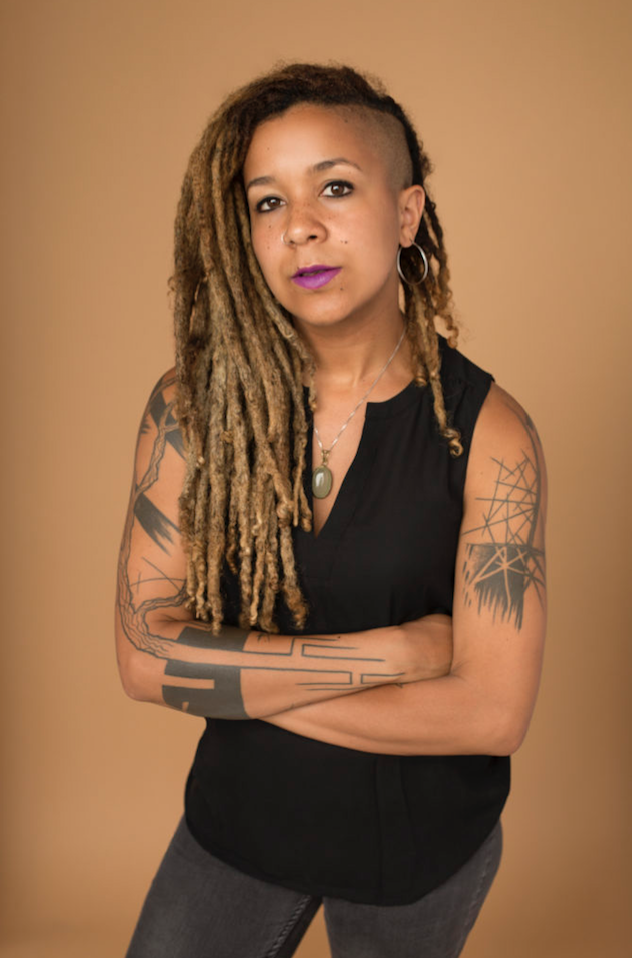Author talks history of Canadian slavery
By Rosa Saba
When Robyn Maynard speaks, she often asks members of the audience whether they remember learning about the history of American slavery. Almost everyone puts up their hand, she says, but when asked if they learned about Canadian slavery, almost no one does.
Maynard is the author of a new book called Policing Black Lives: State Violence in Canada from Slavery to the Present, in which she traces the history of anti-black racism in Canada. She recently talked about her work on Nov. 13 at an event hosted by the University of Ottawa’s criminology department, with a Q&A hosted by Dahabo Ahmed Omer, spokesperson for the Justice for Abdirahman Coalition.
The coalition formed after the death of Abdirahman Abdi, a 37-year-old Somali-Canadian man who died in police custody in July 2016. An officer involved in Abdi’s violent arrest faces a manslaughter charge in a trial scheduled to begin in February 2019, but Const. Daniel Montsion’s lawyer recently suggested that Abdi may have died of a heart attack, and blamed “a fringe group of extremists” for the public framing of the incident as a case of police brutality.
With a background in frontline work, Maynard said she has seen firsthand the effects of historical racism in Canada and realized there was a “significant gap” in Canada’s conversation about those effects.
The rise in public discussion of racial profiling and police violence through movements such as Black Lives Matter led Maynard to realize that it was time to close that gap.
“This is something that doesn’t really receive the kind of attention that it should,” said Maynard, using the example of an almost two-week protest by Black Lives Matter Toronto after the July 2015 shooting death of Andrew Loku, a native of South Sudan, at the hands of Toronto police.
“There’s a longstanding history of disproportionate killings of black peoples in Canada.”
Maynard said comparisons between Canada and the United States on the issue have been made since before the civil rights movement. And questions continue to arise when, for example, the deaths of Philando Castile and Alton Sterling (two African-American men shot by police in July 2016) remained in the headlines longer and louder than did the deaths of Canadians such as Abdi or Loku.
More broadly, Maynard said most Canadians are unaware that the last segregated school in Canada was only closed in 1983 in Lincolnville, N.S.
“What we really have is a very deliberate suppression of a really important part of Canadian history,” Maynard said. “I think it means a lot that when Canadians think about racism, we are taught to think about the United States.”
The death of Abdi is one event that Maynard said brought the conversation of anti-black racism into the Canadian public sphere.
When Ontario Attorney General Yasir Naqvi announced proposed new rules regarding police oversight in the province, he referred to concerns among minorities about police ignorance of their concerns — an example of one way the death of Abdi and the activism afterwards brought these concerns into the public discourse.
Much of Maynard’s work is focused on state violence and the effect of state institutions on racialized peoples in Canada. Segregated schools, she said, are just one example. She compares that legacy to the residential school system used to separate Indigenous peoples in Canada from their families and culture.
“If we’re going to look at the historical racism in the criminal justice system, we need to look at how it has always also disproportionately targeted Indigenous populations,” she said. “These racisms haven’t been identical . . . . but there are so many overlaps.”
These histories, she said, are important in order to understand the contemporary issues that racialized peoples face in Canada today, added Maynard. She cited the example of the disproportionate number of black children being taken from their homes and put into the child welfare system.
“The idea of separating black families and of segregating black children actually has a longstanding history in the development of child welfare in Canada,” she said.
Maynard said she hopes the book will provide insights into a side to Canadian history that has been largely absent from public discourse.
“The racialized surveillance and punishment of (Canada’s) black populations has always been a part of the foundation of the justice system,” she said, adding that though Canada’s problems are not as widely talked-about as those in the United States, “there are many, many similarities.”
Justin Piché is a professor in the University of Ottawa’s criminology department and part of the Carceral Studies Research Collective, which organized the U of O event. Maynard’s talk was the first event in U of O’s Criminology Week 2017, titled “150 Years of (De)Criminalization in Canada,” a series oriented around issues of oppression through the criminal justice system.
Piché said the collective thought a discussion about Maynard’s work would be an appropriate way to begin the week, and that involving the Justice for Abdirahman Coalition would bring the focus to a more local level while contextualizing events in Ottawa within the broader North American conversation around race.
“One of the things that we want to do is bring together research with lived experience, with ongoing social justice movements and struggles,” he said. “These are not isolated, one-off incidents. These things have happened countless times over the course of Canada’s history.
“I think it’s important to always contextualize the present – locate it within longstanding, broader social struggles,” added Piché. “I expect we’re going to have a really great conversation about how black lives in Ottawa, Canada and beyond have been policed.”
This story was produced in collaboration with iPolitics and Artsfile.ca.

